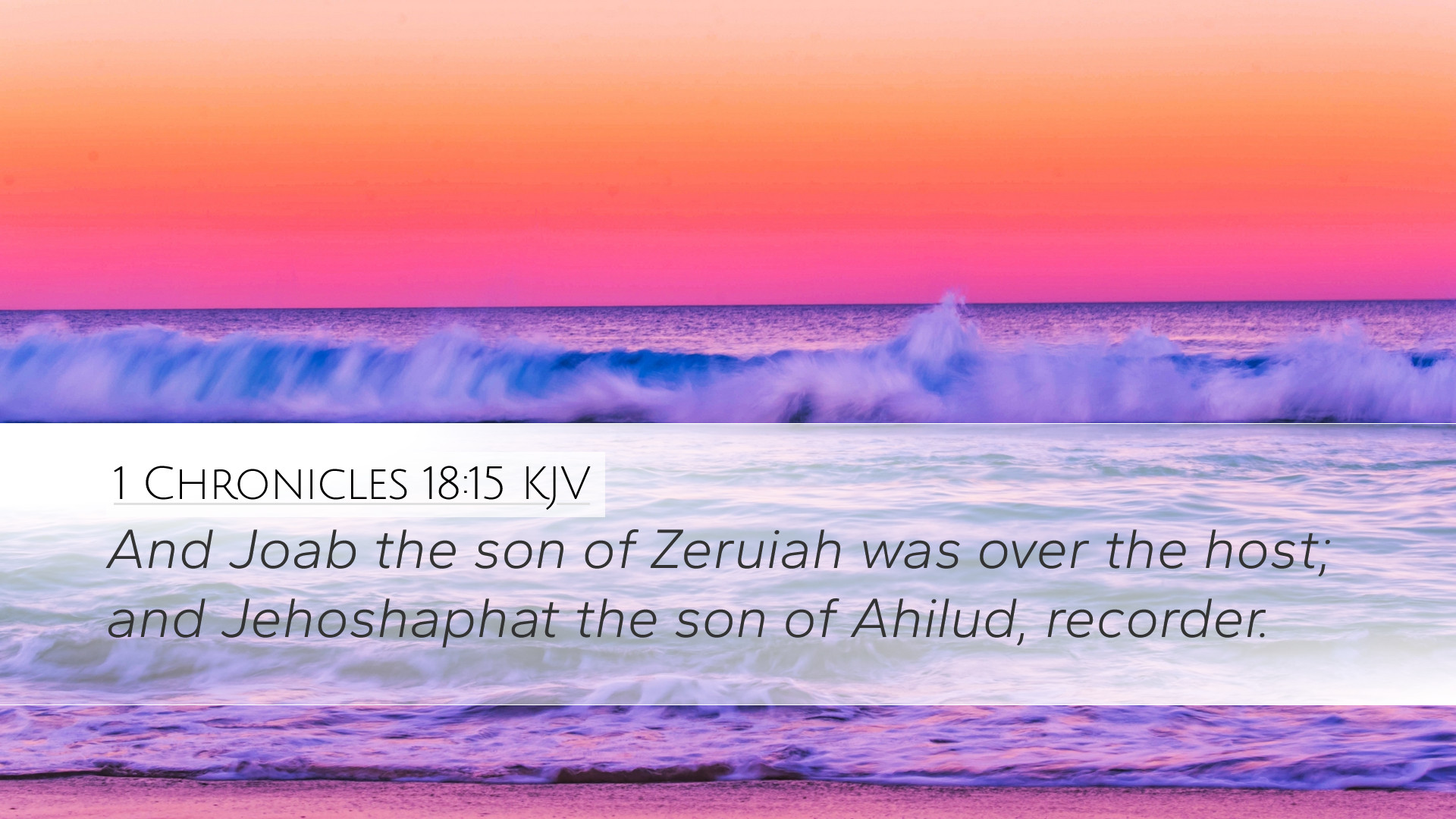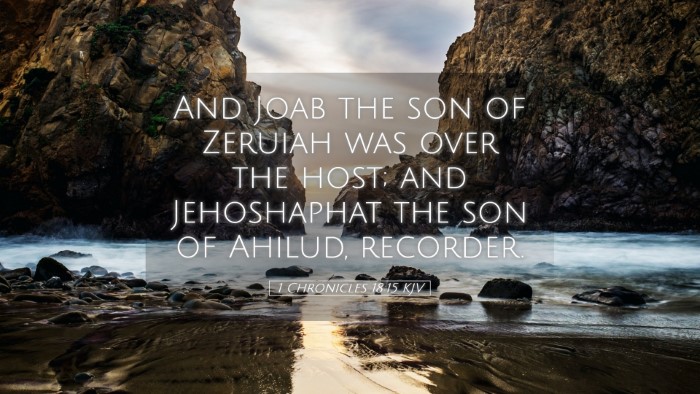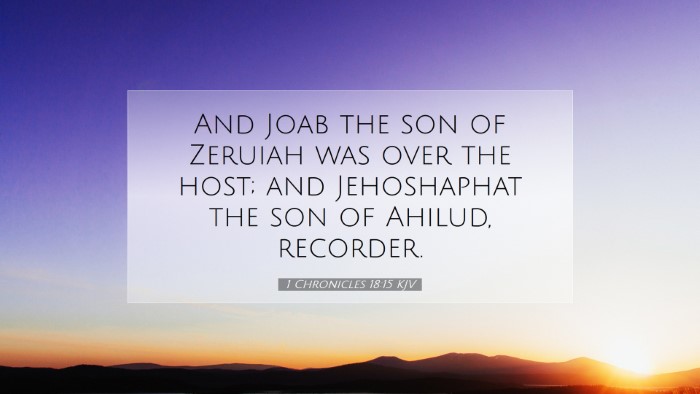Commentary on 1 Chronicles 18:15
Verse: "And Joab the son of Zeruiah was over the host; and Jehoshaphat the son of Ahilud, recorder." (1 Chronicles 18:15)
Contextual Overview
The book of 1 Chronicles primarily focuses on the reign of King David, detailing his achievements, military victories, and the establishment of worship in Israel. The mention of Joab and Jehoshaphat as key figures in David’s administration highlights the importance of leadership and governance in Biblical Israel.
Analysis of Key Terms
- Joab: The nephew of David and a prominent military leader. His role as “over the host” signifies his authority and responsibility in leading the Israelite armies.
- Jehoshaphat: Serving as the “recorder,” this position involved the meticulous documentation of events, decisions, and possibly military exploits, showing the importance of accurate record-keeping in governance.
Insight from Matthew Henry
Matthew Henry emphasizes Joab's character as a man of valor and skill in warfare. However, he notes that while Joab was essential in David's military campaigns, he also exhibited traits that were at times contentious and independent. Henry suggests that Joab's leadership was a double-edged sword; his victories were matched by his personal ambitions.
Henry draws attention to the role of Jehoshaphat as a "recorder," interpreting this function as crucial for maintaining historical integrity and decision-making within the kingdom. Proper records would provide accountability and a reference for future leadership.
Insights from Albert Barnes
Albert Barnes discusses the significance of Joab's military leadership. He points out that Joab was the executor of David’s military strategies and had a significant hand in securing Israel's boundaries during a tumultuous time. Barnes posits that Joab’s skills in leadership were both a blessing and a potential threat to the monarchy due to his personal motivations.
Regarding Jehoshaphat, Barnes highlights that the position of recorder was not merely clerical but essential for shaping the nation’s narrative through documentation. This role reflects God's sovereignty in guiding history and the need for future leaders to learn from the past.
Contributions of Adam Clarke
Adam Clarke provides a detailed examination of both characters. He recognizes Joab as a figure of complexity—capable and brave, but also prone to violence and betrayal. Clarke points to Joab's eventual rebellion and suggests that even the greatest leaders must remain vigilant against pride and ambition which can lead to downfall.
On Jehoshaphat, Clarke remarks on the vital nature of his role in ensuring the administration ran smoothly. Recording decisions and events allowed governance to be transparent and provided a record for future generations. Clarke implies that such roles are integral to any organization, as they ensure continuity and legacy.
Theological Reflections
This verse serves to illustrate the interplay between divine sovereignty and human agency within the Israelite monarchy. Joab’s military victories reflect God’s power working through human leadership, and the role of the recorder embodies the necessity of human responsibility in documenting God’s faithfulness to His people.
Moreover, it opens a discussion on leadership within the church today. Just as Joab and Jehoshaphat had specific roles, modern leaders must operate within their God-given capacities, fostering unity and strategic obedience to God’s commands.
Application for Pastors and Theologians
For pastors, this passage highlights the importance of recognizing and appointing capable leaders within the church. Just as Joab was pivotal in battles, church leaders must be equipped to confront spiritual challenges with integrity and courage.
For students of theology, analyzing these biblical figures encourages a deeper understanding of leadership dynamics and God’s use of imperfect individuals. It offers an opportunity to study the implications of leadership styles depicted in Scripture and their consequences.
Conclusion
1 Chronicles 18:15 serves as a foundational verse that unveils the complexities of leadership and governance in Israel under David. Insight from esteemed commentators reveals that these historical figures reflect timeless truths about authority, accountability, and God’s guiding hand in human affairs.
As believers today engage with this text, they are encouraged to glean lessons on effective leadership, the importance of documenting God’s work, and recognizing the ever-present need for divine wisdom in both spiritual and civic realms.


